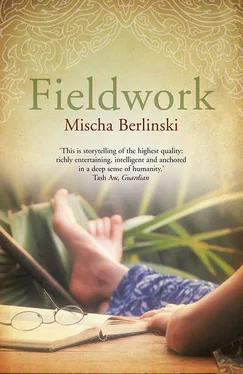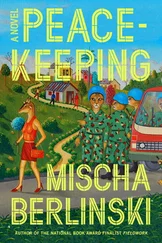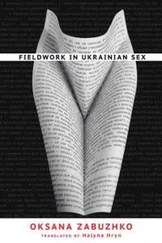The next morning, I got Martiya's aunt on the phone. It was the first of several conversations. Elena van der Leun spoke to me warily at first, her very excellent English cloaked in a sharp Dutch accent. She had a throaty old voice, cured by a lifetime of cigarettes, so that everything she said sounded a little like two pieces of sandpaper being rubbed together. She had plenty of time to linger by the phone and chat. There was only one ground rule for our conversations: Elena van der Leun told me that she did not know the details of her niece's crime, and she did not wish to speculate. This, of course, was what I most wanted to know. But, the crucial point aside, she was eager to talk.
So much in Martiya's dramatic life, Elena insisted, could be explained by the simple fact that her parents were not happy together. "A child needs the happy family," Elena declared. "It is the base." But Martiya's base was unstable: her mother and father met and married impetuously before the war, passed difficult wars apart, and after the war were unable to recapture the intensity of emotion that had brought them together. When Martiya was born, in 1947, in a small village in the central highlands of Celebes, a large island in the Indonesian archipelago now called Sulawesi, both parents looked to the child to reinvigorate a dying marriage. The rainy season in central Sulawesi can last as long as six months, and all winter long the family was trapped together in a cottage on the edge of a great ebony forest. The family paid local villagers to haul their water and cut their cassava and taro. They bought rice at the market. Areta van der Leun read novels. Piers van der Leun kept busy with his tape recordings and verb charts and lexicons. Areta van der Leun paced the corners of the house wearing an old lava-lava. Martiya's base teetered and then toppled.
The Dutch are widely known for their linguistic gifts, but Piers van der Leun was extraordinary even by Dutch standards. Piers spent a summer in Sweden as a young child, Elena recalled, and came back speaking perfect Swedish. "My brother could look at the map of Kenya and speak Swahili," Elena said. He was educated as a linguist at the University of Leiden, and then, like many young Dutch men of his generation, joined the colonial administration in Indonesia. The colonial government in Jakarta took care to survey and record all of the minor languages of their vast holdings, on the sound principle that even the smallest ethnic rivalry can easily flare up into a matter of sufficient gravity to involve the local government: on joining the colonial service, Piers, at his own request, was given the task of mastering the half dozen tribal languages known collectively as the Uma, spoken in the southern portion of Kulawi District of the island of Sulawesi, not far from the mighty Lariang River.
The languages were fiendishly difficult, and mastering them required all of Piers's gifts: they were beautiful subtle things, which he pieced together preposition by preposition, verb by verb. In the hut which the colonial administrator provided him, he kept enormous tables of nouns, pronouns, and a provisional grammar. He invented an alphabet, and in a shorthand of his own devising transcribed hours of their speech. The loneliness of the jungle suited him: he sent back to Holland rhapsodic letters describing the exoticism of the native customs, and the ecstasy of their shamanic visions. When the old newspapers from Amsterdam finally arrived by post and Piers read accounts of Europe tottering on the brink of another war, he thought of his gentle tribesmen and the beautiful languages in which they conducted endless philosophical debates, and he would smoke his pipe and write a long letter to his sister. In one letter, he wrote, "I am where I want to be. How many men can say that?"
Elena van der Leun later sent me photographs of Piers taken when he was in his early thirties, some time before he met Areta, well before the war. Piers is standing in what I took to be the jungle, a tall man stooped beside a tree dripping with vines. He has a pipe in his mouth, and a wisp of smoke is visible beside his ear. He has a handsome, round face. His eyes are gentle but weak. If this description is vague, so was the face: it is the face of a smiling man with a calm and easy interior life, a man who cannot even imagine a woman who simply will not stop crying. Not long after the picture was taken, Piers van der Leun's uncomplicated life as a bachelor scholar came to an end. Even in the most remote corner of Kulawi District, one cannot escape the world.
In the fall of 1938, Piers was invited to a general colloquium on the Australasian languages at the University of Jakarta. The field of ethnolinguistics was in its infancy, and every man at the conference table felt himself a pioneer. Piers presented a paper on the language of the Tobaku villagers, and argued that similarities between the language of the Tobaku and the language of the Pipikoro implied a common ancestral tongue. His work was received enthusiastically, and after the presentation he found himself in long conversation with a Malaysian linguist, one of the few Asians at the conference, who was fascinated by Piers's methodology. Eleven months later, Piers married the Malaysian linguist's eldest daughter.
"I only met her after the war, and of course she looked so tired," recalled Elena van der Leun. "Her hair was gray already and she was too thin. But she must have been a lovely little thing before the war. It was possible to see that, even after what she had gone through. Piers wrote me letters about her and I could imagine the silk black hair and the delicate features and the white skin — Martiya had her mother's skin. She had very large round eyes, particularly for an Oriental. I think somewhere in her past there must have been white blood, since Martiya has blue eyes.
"Piers wrote me long letters about Areta — I don't have them anymore, but I remember. He was just mad for her. He had been invited up to Sabah State by her father, where he met her, and then they wrote each other every day. It was not something one did very often in those days, marry a native woman, but Piers, he did not care. She was a student of English literature — Malaysia was an English colony at the time, you know, not one of ours — and the two of them spoke always in English. He told me that she just chattered away about any old thing. He said he was falling in love with a singing bird. It was the only time in his life that I heard Piers say something so romantic."
There was a strange hiss on the telephone line and Elena said, "Do you hear me?" and I said, "Yes," and Elena went on. "I think he must have been quite exciting for her too. Piers in those days was tall and quite adventurous, and for a girl who had spent her entire life in Penang reading novels , the idea of living in the jungle with tribesmen must have been very exciting. The two of them were married and spent almost a year together. I think it was for Piers a very happy time. That's why they spent so long in the jungle later, because they always—"
Elena paused and started to cough. I could hear another cigarette being lit. I admired her ability to smoke and cough at the same time.
"And the war came." Elena sighed. "We had such a hard war here in Holland, but it must have been worse there. Because of his languages Piers was assigned to some sort of unit doing I don't know what. He spent most of the war in a Japanese prison camp. He was very lucky to live. And Areta's family was almost entirely dead after the war. I don't know what she did to survive. She certainly never told me, I don't think she ever told Piers. After the war, they found each other and he took her back here to Utrecht. You need to let go of bad things, and I don't think she ever let go of her bad things. Don't you think you need to let go of bad things?"
Читать дальше












